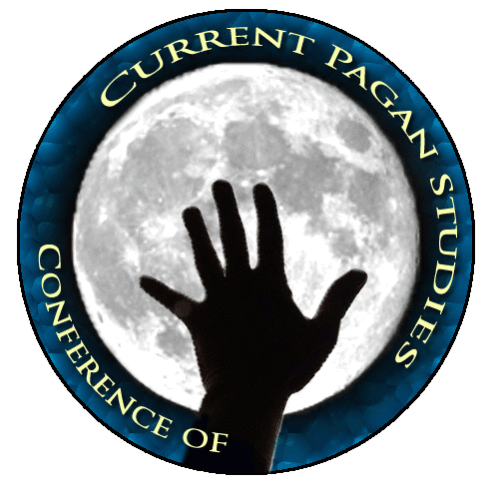CLAREMONT, Calif. — The 14th annual Conference on Current Pagan Studies will take place Jan. 27 and 28 here. This year’s conference has the theme of “integrity, action, and identity.” While the conference generally has an academic focus, organizers also welcome non-academics. In the past, attendance has ranged from 70 to 100 people.
 Jeffrey Albaugh, former president of Cherry Hill Seminary, chairs the event. In mid-January, The Wild Hunt spoke with Albaugh about the conference and its unique focus. Albaugh’s words have been edited for brevity and clarity. He used the term “contemporary Pagans” to describe modern Pagan individuals and the term “contemporary Paganisms” to describe current Pagan behavior and belief.
Jeffrey Albaugh, former president of Cherry Hill Seminary, chairs the event. In mid-January, The Wild Hunt spoke with Albaugh about the conference and its unique focus. Albaugh’s words have been edited for brevity and clarity. He used the term “contemporary Pagans” to describe modern Pagan individuals and the term “contemporary Paganisms” to describe current Pagan behavior and belief.
According to Albaugh, this year’s conference aims to explore its theme of identity, action, and integrity. He says that contemporary Pagans tend to value practice more than belief. This action orientation can create problems when those actions fail to align with identity. Albaugh defined integrity as “how we hold all this together.”
While conference organizers chose these themes before the #MeToo movement, Albaugh felt that this movement would echo strongly throughout this year’s conference. That hashtag mostly involves abuses of power in the workplace rather than those in spiritual practice, but abuses can occur in spiritual practice as well, he explains.
During the interview, Albaugh discussed a key arena for questions about integrity. Flawed individuals can make major contributions to organizations and movements, he notes. They can also act in abusive ways. Should credible allegations of wrongdoing affect how people judge someone’s work?
Many people, Albaugh included, have found Marion Zimmer Bradley’s books worthwhile and enjoyable. Beginning in 2014, her daughter came forward with allegations that Bradley sexually and emotionally abused her. In response, some contemporary Pagans want to “trash” Bradley’s books.
Albaugh ponders, “Somebody has positively contributed to a field, but they have a skeleton in their closet. Do we throw out everything that they ever did because of that skeleton? I don’t have an answer to that, but it needs to be discussed.”
These are the type of the deep and difficult questions asked and debated during the annual January conference.
 Some contemporary Pagans might question the validity of an academic conference on contemporary Paganisms. Some, maybe many, Pagans value intuitive knowledge more than formal learning, and others just simply distrust academics.
Some contemporary Pagans might question the validity of an academic conference on contemporary Paganisms. Some, maybe many, Pagans value intuitive knowledge more than formal learning, and others just simply distrust academics.
Albaugh argued that certain academic disciplines align well with understanding intuitive knowledge. He said, “A qualitative approach can value these more intuitive types of thinking.” Qualitative approaches can discover how people experience their world, and how they understand and interpret that experience.
For the last 14 years, Albaugh has been attending these conferences. He credits them with providing insights into ritual design, initiation rituals, group facilitation, and contemporary Pagan history. As these conferences bring together people from different traditions, they encourage cross-fertilization among differing Pagan traditions.
Albaugh described previous conferences as giant cauldrons of churning ideas. In a more secular manner, he described them as Pagan think tanks. He emphasized this potential for idea-generation at these conferences. “Some of the ideas fall on deep soil and take route. Some don’t,” he explains.
According to Albaugh, debates will often spill out from a conference session. “You’ll find people having animated discussions about what was just talked about. We often have discussions online for weeks afterward.”
Two particular events from past conferences stood out in Albaugh’s memory. He observed one attendee’s spiritual and professional growth over several years. This man was working in the prison system. When he attended his first conference, he had no academic degrees.
Albaugh described his development over the years: “A couple of years later, he’s got a bachelor’s degree. A couple of years after that, he gets a master’s degree. The conferences had inspired him.” He kept coming back. At these conferences, he discussed his counseling work in the prison system and the breakthroughs that prisoners experienced.
The second event involved a black woman’s story of racial marginalization within a Hellenic community. She reported on her experiences, and how she had tried to work with a group of Hellenic Pagans. After she had finished her presentation, the audience stood up to acknowledge her courage and pain.
This year’s upcoming Conference for Current Pagan Studies aims to examine integrity, as it merges with action and identity, from a Pagan perspective.
The conference is held over two days, Jan. 27 and 28, at Claremont Graduate University in Claremont, California.
The Wild Hunt is not responsible for links to external content.
To join a conversation on this post:
Visit our The Wild Hunt subreddit! Point your favorite browser to https://www.reddit.com/r/The_Wild_Hunt_News/, then click “JOIN”. Make sure to click the bell, too, to be notified of new articles posted to our subreddit.